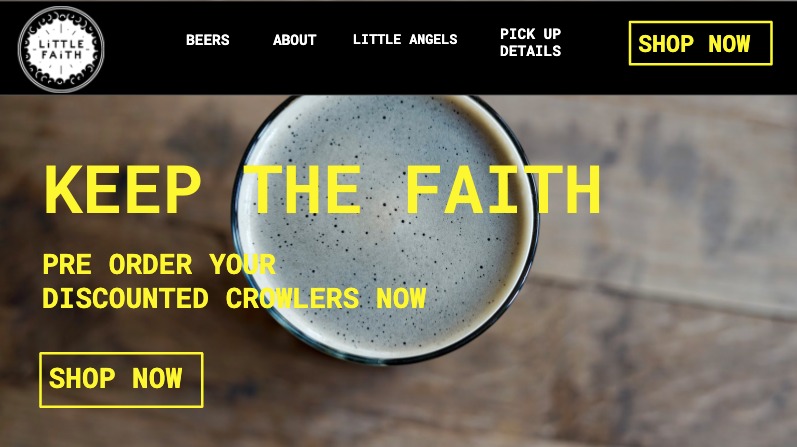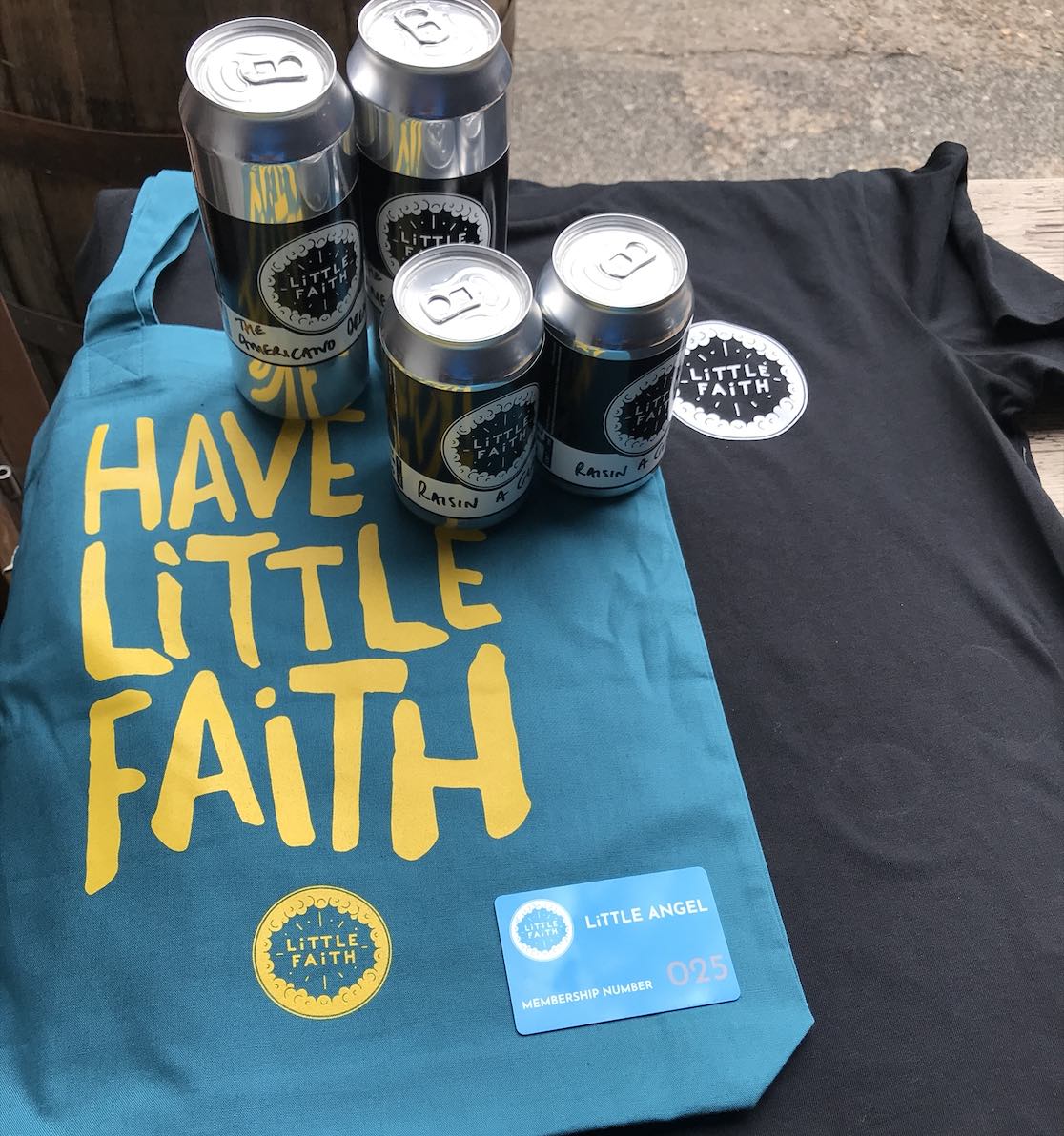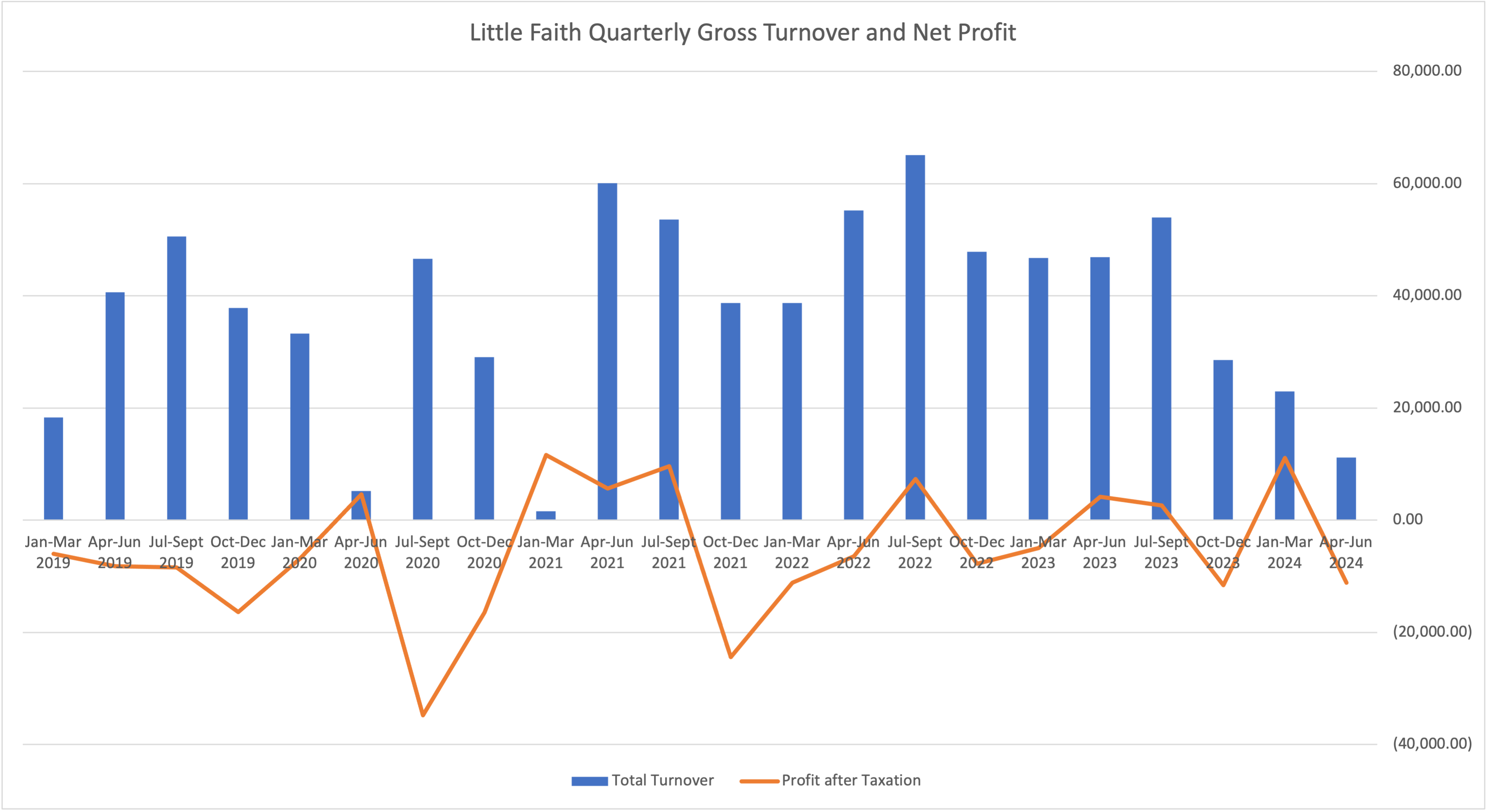Blog
21.05.2025 - How I found myself running my own businesses
In 2018 I threw myself into running businesses - a shipping container hotel in Waterloo and a brew pub in Deptford.
Up to this point my career was focussed on planning and managing property development projects and conducting financial appraisals. In 2018 the year the hotel and the pub opened my day to day changed to business operations. It was a conscious decision, but maybe one I wasn’t completely prepared for.
When we were building the hotel I knew the plan was to manage the hotel rather than sell the building. I liked the idea of a longer term project and this brought interesting new opportunities for me. I led on designing the brand, overseeing the operating partner, and managing the development of the mobile guest app.
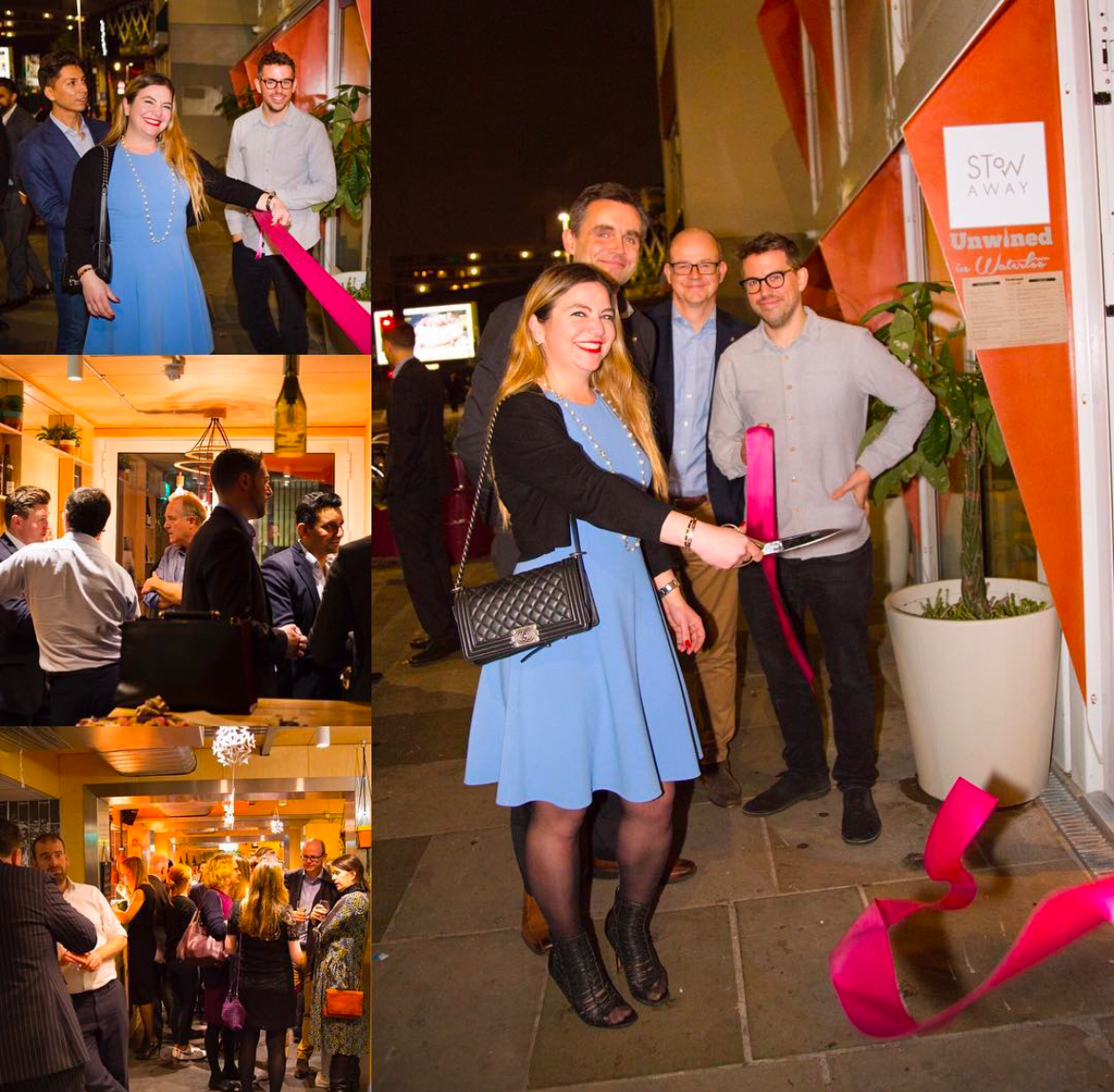
The pub had been a 3 year pipe dream since leaving my role at Camden Market - it took several iterations of teams, ideas and budgets to finally get set. I was now working with the previous owners of Camden Market developing the hotel and they were willing to give me a shot at opening the pub in a 1930s warehouse they owned in South East London.
So thats how it happened. Ultimately after a few tough covid hit years I decided needed a change and sought 3 things:
- More leadership skills as I was managing a lot of people
- More meaningful work as running 2 hospitality businesses had become routine
- A wider network outside of property and hospitality
Therefore in 2021 I left the hotel business having accepted a place on On Purpose, a 12 month leadership programme in social impact .
I ran the pub business for a further 3 years eventually closing it in the summer of 2024.
15.02.2025 - My life running a pub
So in the summer of 2018 a friend (Alex Woods) and I took on a side project. We brewed some beer and launched a pub called Little Faith in Deptford. Over the following six years, we brewed over 20 different beer styles, employed 36 staff, and generated over £1 million in sales.
When people find this out about me, they often say ‘I’d love to run my own pub’, or ‘that's every mans’ dream’. I'm now in a position to provide some feedback.
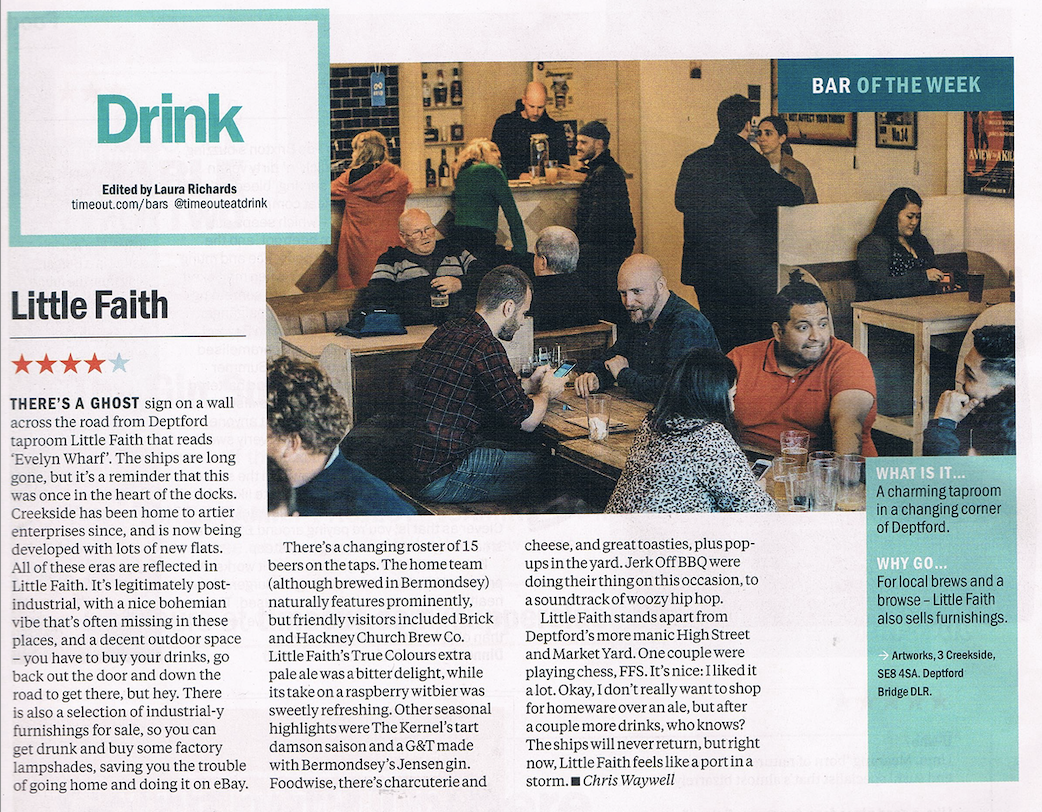
Did I love running a pub?
The answer would be yes and no. I think it's fair to say you’ll never know what it's like until you’ve run one. At the beginning I was caught up in the excitement of it all to think about it negatively. I did love it for a while. On opening night I was behind the bar pulling pints in front of a queue 3 people deep, including a lot of my friends. This was a great night. Many others followed. Suddenly I had a stake within the local community. People started to recognise me in the street or mention how much they’d enjoyed coming to my pub. This was always lovely to hear.
However there were plenty of nights when the queue at the bar wasn’t three deep. These nights were really tough (and costly). I also hired staff over time to replace me behind the bar (it was never the plan that I remain there), who were great and loyal but also came with challenges. Managing people can be really hard. Then of course Covid came. Urgh. By the time I finally closed it nearly 6 years later I would say the love had gone. I still enjoyed the odd celebration there, including my 40th birthday, but this didn’t quite make up for the weekly toil of managing a very tight cashflow, keeping the staff happy and engaged, and trying to make any sort of reliable forecast about the months ahead. The predominant feeling when it closed was relief.
Should it be every man’s dream?
I can still see the attraction. Pubs are like churches. A place for the local community to meet, to nod at each other. There's certainty as to when it will be open every week. A good landlord—definitely not me—often acts like the vicar. Getting to know the regulars, asking about their week, remembering their usual. All this stuff is pretty warming for the heart. But I think it takes a certain sort of person to be a publican. For one the working hours aren’t great if you ever wish to be somewhere else in the evenings. Also the profit margins of a pub are generally very tight. Costs for stock, staff, and rent were high—by the time we covered those, the profit we managed to turn was razor-thin and easily wiped out by a quiet week. We only survived the lean times due to a combination of covid grants, bounce back loans and a covid insurance payout. Perhaps things would’ve been different if mine had been the only pub in a quiet village, rather than one of many just 5 miles from central London. But even so at their core I believe pubs are a lifestyle business. You need to be prepared to live the lifestyle and in the end I wasn’t.
03.04.2024 - Overcoming my fear of failure
5 years ago my sister bought me a curious birthday present. It was a class at Alain de Botton’s School of life on the topic “How to fail”. At first glance I suspected some kind of thinly veiled sibling jab. But it wasn’t. So I took the class and years later, I still think about what I learned.
Throughout a lot of my early years I had not experienced failure. I had successfully followed a path I’d been expected to take. 11 plus, GCSEs, A-levels, university degree, graduate scheme, continuous employment. No gaps. I’d considered detours such as a gap year, an art foundation course instead of an economics degree, or time off after university, but I never followed through. They weren’t ‘part of the plan.’
Looking back, I realise I was afraid of failure. But that fear was closely tied to a desire to please my parents, my friends, my peers. The path felt secure, but it didn’t feel like mine. I was playing it safe, and in doing so, I wasn’t making decisions for myself.
I’d struggled with self-belief and confidence growing up. I hid behind humour, a self-protection mechanism I picked up in the school corridors, but I now see that it was rooted in my fear of failure. By playing it safe, I avoided putting myself in vulnerable situations.
Failure is good. Failing fast is good too. In 2018, I took the plunge and started my own business. Probably the ultimate gearing up for failure given that 20% of new businesses fail within their first year. I didn’t mind what others thought about my plan. It was my plan. The business lasted six years. Financially, you might call it a failure. I didn’t make back my investment. But I gained so much more.
That experience taught me the value of courage, not just in business but in taking risks and embracing change. It gave me a newfound boldness that’s now shaping how I approach work and new opportunities. That lesson alone made it worthwhile.
Today, I’m braver. I see the value in changing course, in stepping away from the plan and in taking chances. I’m clearer about what I’m good at, what I enjoy and what’s next.
A good birthday present.
“Failure is the condiment that gives success its flavour.” Truman Capote.
